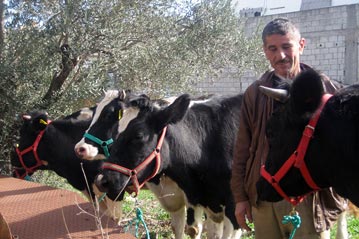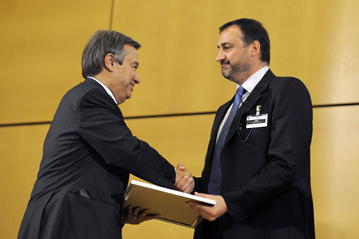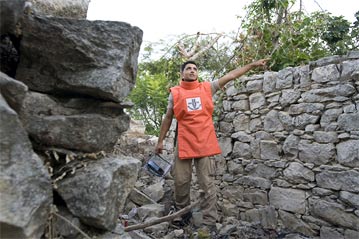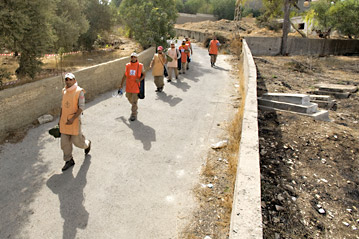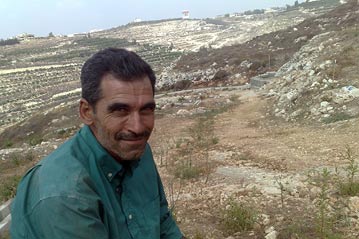Crimean Tatar activist receives Nansen Medal
Crimean Tatar activist receives Nansen Medal
A Crimean Tatar activist received the 1998 Nansen medal today in recognition of his outstanding efforts to help Crimean Tatars reintegrate in their native Ukraine.
The United Nations High Commissioner for Refugees, Sadako Ogata, presented the medal to Mustafa Dzhemilev, 55, at a ceremony at the Palais des Nations in Geneva. Dzhemilev, she said, was chosen "for his commitment to the right of return of the Crimean Tatar people". The Nansen Medal is awarded for exceptional service to the cause of refugees.
Dzhemilev was born in 1943 in Crimea. In May 1944, when he was less than a year old, Stalin's troops rounded up the entire Tatar population - around 200,000 people - and deported them to Central Asia, accusing them of collaboration with the Nazis.
In 1961, at the age of 19, Dzhemilev joined the "Union of Young Crimean Tatars" and the peaceful struggle for recognition of the rights of the deported Crimean Tatar population. His name is also inextricably linked to the Soviet dissident movement: in 1969, with Andrei Sakharov and others he co-founded the "Initiative Group for the Defence of Human Rights in the USSR". For twenty years, between 1966 and 1986, he lived alternately under surveillance, in hard-labour camps, in forced exile and in Soviet prisons.
While still in exile, Dzhemilev committed himself to the defence of the basic rights of his people. In 1987 he was elected to the "Central Initiative Group of Crimean Tatars", and in May 1989 he was chosen to head the newly founded "Crimean Tatar National Movement". That same year he returned to Crimea with his family, spearheading the return of more than 250,000 Tatars to their homeland.
When the Soviet empire collapsed, hundreds of thousands of people found themselves stateless in the newly-independent countries which emerged from the former USSR. The Government of Ukraine gave the Tatars permission to return in 1989, after more than 40 years in exile, mostly in Uzbekistan, Kazakhstan and the Russian Federation. It asked UNHCR to help in addressing the numerous problems arising from their return, including the question of citizenship.
A recent agreement between Ukraine and Uzbekistan has simplified the procedure for renunciation of Uzbek citizenship and acquisition of Ukrainian citizenship by Crimean Tatars who have returned to Ukraine. High Commissioner Ogata welcomed the bilateral agreement as a "major step in finding a lasting solution for those Crimean Tatars who have returned and are already stateless or threatened with statelessness".
As President of the Association of Crimean Tatars (the Mejlis) and as a member of the Ukrainian Parliament, Dzhemilev has worked tirelessly side by side with UNHCR to help tens of thousands of Tatars recover their Ukrainian citizenship and their basic rights.
The Nansen medal is named after the Norwegian diplomat and explorer Fridtjof Nansen, the first High Commissioner for Refugees under the League of Nations. The prize was established to focus attention on refugees and to rally international support for forcibly displaced people. The Nansen Committee, which is chaired by High Commissioner Ogata, consists of representatives of the governments of Norway and Switzerland, the Council of Europe, and the International Council of Voluntary Agencies. The first Nansen medal was awarded in 1954 to Eleanor Roosevelt. The medal has been awarded 38 times since 1954.
Recent winners of the Nansen medal:
1997: Sister Johannes Klas
1996: Handicap International
1995: Mrs. Graça Machel
1993: Médecins sans Frontières
1992: Dr. Richard von Weizsäcker
1991: Dr. Paul Weis (posthumously) and Dr. Libertina Appolus Amathila
1988: Mr. Syed Munir Hussain
1987: H.M. Juan Carlos I, King of Spain
1986: The People of Canada

